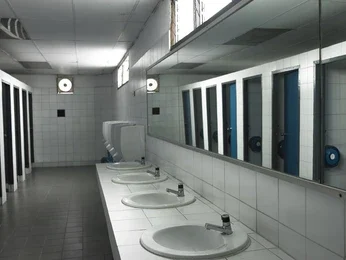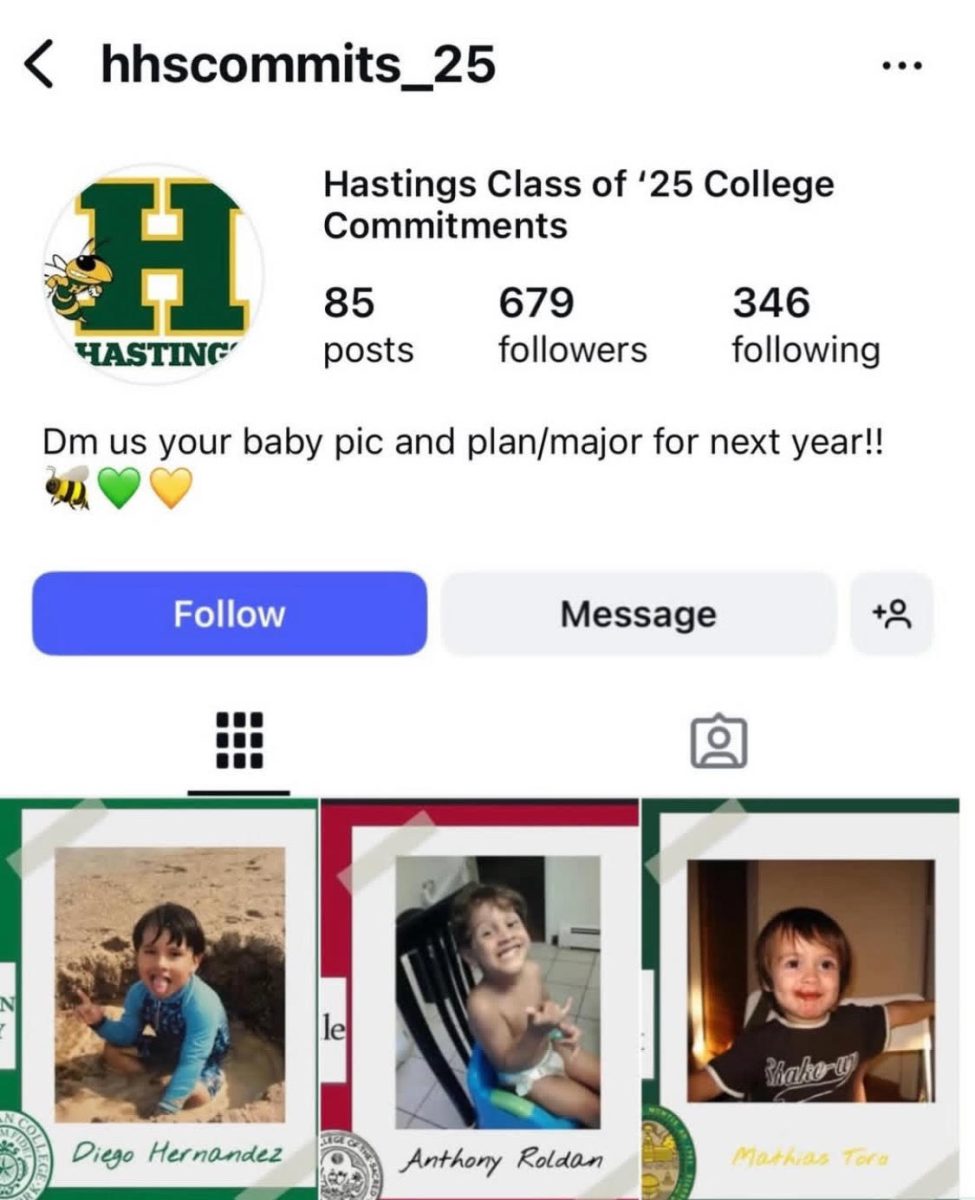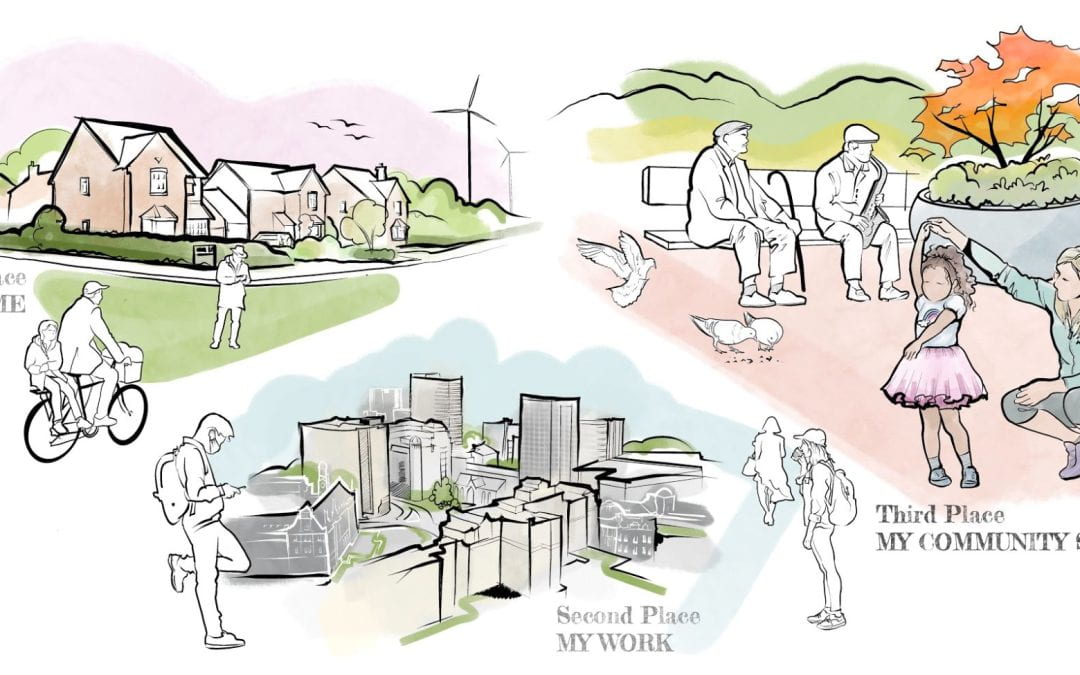Parent Involvement at HHS
March 22, 2021
When Ms. Repp, the only social worker in HHS, was hired by past superintendent Dr. Russell in 2002, one of the things he told her during her first interview was that in order to do well in Hastings UFSD “you need to understand that the parents of Hastings are very passionate about their child’s education.”
Often, this passion translates into involvement. But just how much say should parents have in their child’s education? Do parents, and specifically a small subset of very vocal parents, have too much power over decisions made in the school building? According to Mr. Stephens, over the past decade parent involvement in Hastings’ schools has increased tremendously. He noted that “each year, it seems as if more and more parents are managing their children’s schedule of assignments and interacting on grades. This is more than managing the portal—parents are asking us to send work directly to tutors, they’re asking us to change grades to help a GPA, and calling in with reasons why an assignment will be late or isn’t reasonable.”
Furthermore, Mr. Stephens noted that some parents explain their child’s long list of individual needs to teachers, “calling [to] let us know what their kids are like, how best we can ‘meet them where they are,’ and telling us stories about the kid so we’ll understand them better.”
Of course, many parents do not see it this way. One anonymous parent thinks that teachers are not doing enough to deserve the pay they receive: “I wish that the teachers would give more feedback when they return an assignment instead of just slapping a grade on and you don’t even know what that grade means. I wish they would put more comments on the work. [My son] has told me that the kids question whether the teachers even read and check over the assignments that they have assigned, or kids handed in. So that’s kind of disturbing.”
This particular parent admitted to being a staunch believer in increasing “supervision,” because “I feel like the teachers are not getting a whole lot of supervision; I feel like they’re not being observed very much. Their union is very strong and there’s certain things written into the contract that limit the amount [of time] that they can be observed. So [teachers are] doing this job, and nobody’s allowed to even see whether they’re doing it well. I feel like there should be more monitoring and more professional help, or on the negative side, making sure that there’s consequences if [teachers] don’t do things the way they should. I feel like there’s too much coasting.”
Another parent offered, “I really feel [parents] should have a say in everything that goes on in the school! I mean, we elect the school board, and then they’re the ones who are supposed to be in charge of the school.”
How much Parent Involvement is Too Much?
One of the main issues with so many parents treating Hastings schools as a form of customer service may reside in a major wealth disparity that benefits parents with socioeconomic privilege and the time to cater to their child’s every need. Annette Lareau is a sociologist working at the University of Pennsylvania who studies family life and how the social position of children and parents has an impact on their quality of life, and recently wrote an opinion piece entitled How Entitled Parents Hurt Schools. She wrote, “affluent parents can create conflict and interfere with school districts on a scale that is rarely acknowledged” and often misunderstood, and noted that “there are consequences to this phenomenon of ‘opportunity hoarding’ by well-to-do parents,” many of whom “monitor and scrutinize teachers and principles, which can diminish educator’s authority.” She noted that parents are often “concerned for their own children, while educators look to the success of all students.” Although she said it is sometimes unavoidable for parents and teachers to be “natural enemies” by virtue of their starkly different priorities, she thinks that when parents heavily believe that “education is a shared responsibility between teachers and parents” and are “very critical of school and teacher performance,” this often promotes student entitlement and fractures relationships.
Alfie Kohn, a prominent American author and lecturer in the fields of parenting, education, and human behavior, echoes the beliefs of Lareau: school has primarily become a place of “establishing how good you are,” and that this relatively new system of contest and proving worth is vigorously supported by “your upper-class, high-achieving parents who feel that education is competitive, that there shouldn’t be anyone else in the same class as my child, and we shouldn’t spend a whole lot of time with the have-nots.”
This belief which appears to have diffused into the minds of many Hastings parents is one that does not want “all kids to be successful” but only their kid. Kohn added that the entire idea of what a public school in theory should be—“ a place where you went to find out who inhabits this society other than people like you”—has been corrupted by overinvolvement and protectiveness of parents, which has often been disguised as advocacy. He added, “Here, then, we have parents evincing what Nel Noddings calls a ‘mean-spirited attitude that they want their kids to have the best, and to heck with the other kids’—and, in the process, actually [do] a disservice to their own children.” He offered his thoughts on factors behind parental over-involvement in his article titled Only for My Kid: How Privileged Parents Undermine School Reform. In it he addressed the “simple selfishness” exhibited by parents, which not only “sometimes accounts for both the callous disregard for some other people’s children” but also for teachers and anyone who appears to stand in the way of their child’s success.
David Labree, a professor in the Graduate School of Education at Stanford University, thinks that an increase in parental involvement in high-performing, predominantly wealthy schools is concurrent with a shift away from using school as a tool to create democratic citizens. Instead, as Kohn noted, it has manipulated schooling into a “credentialing mechanism… the purpose of education from this angle is not what it can do for democracy or the economy but what it can do for me,” the “me” actually signifying parents. School is not so much for the students, but rather a place where parents can shift school systems in their favor into “a vast public subsidy for private ambition.” He added that for some parents the objective of education is not for their child to learn, but to “gain the highest grade with the minimum amount of learning,” alluding to why so many parents call and email teachers asking/demanding for grade changes so as to “fix” GPA’s. Labree established that it is “the elite parents…who play the game of academic one-upmanship most aggressively…they vigorously resist when educators [pursue a more egalitarian vision].”
Work done by the Metropolitan Center for Research on Equity and the Transformation of Schools at NYU Steinhardt went even further in its claim that “current national and local education policies often pit teachers and parents against each other, trapping them in a cycle of blame and mistrust.”
A Fractured System?
But to what extent does Hastings High School parents’ involvement (or over-involvement) play into the fault-lines described by Labree and Lareau?
From Mr. Adipietro’s viewpoint, the current system allows “students and teachers to be on the same level” and have “real conversations.” Maintaining a high caliber of friendliness between students and teachers demonstrates that Hastings’ “culture is one of mutual respect.”
“I think that the [current student-teacher relationships] are a positive of Hastings,” said Mr. Adipietro. “There’s a culture here where [students] are brutally honest with the adults in this building.”
But does this mean that teachers can also be brutally honest with students?
Senior Hazel Puchillo thinks that “[Hastings students are] all pretty entitled…I’m even speaking from personal experience—I’ve cursed out some teachers and they haven’t done anything…I think that students in the school unfortunately hold a certain power over teachers.”
One anonymous teacher confirmed that there can be fear attached to calling out students for inappropriate behavior, a fear specifically rooted in parental backlash: “a lot of times it’s easier to pretend [an incident with ill-behavior] didn’t happen…Do I want to call [a misbehaving student] out right now and make it blow up into this big thing, when it’s a lot easier to just kind of look the other way?”
But, according to senior Owen Silleck, when teachers fail to call out a student “chaos” ensues, and this system feigned as leniency cannot last forever.
In particular, many of the sources I spoke to discussed an anxiety around the protocol for parent complaints.
“The problem, which I’ll speak very frankly about, is that some parents skip over the teacher and the principal and go right to the superintendent,” one teacher said.
The Board of Education actually has a specific policy, 1400 Policy Complaints, that addresses protocol for parent complaints. It states that “public complaints about the school district will be directed to the proper administrative personnel,” and “complaints about specific classroom practices shall be directed to the teacher concerned” first. If and only if the matter is “not settled satisfactorily,” the “complainant shall then contact the Building Principal; if there is no resolution on this level, the Superintendent of Schools or his/her designee shall be contacted. The Superintendent shall refer the issue to the Board for final resolution, if necessary.”
This question of parents’ going “straight to the top” has been a feature of a number of tense Board of Education meetings in recent years, including one on March 2, 2020, involving a complaint made against a sports coach, during which a community member asked, “Why do some parents get to be heard and other parents are not even remotely consulted at all about [a] situation? […] I’m also concerned that certain parents get heard and certain parents are not part of the process, and not even invited to be part of the process. And honestly if you’re going to engage parents in personnel actions to understand what’s going on with the team you need to reach all the parents. Not just one or two.”
In response, superintendent Dr. Henning-Piedmonte suggested, “When parents do reach out to anyone, we do try to get back to them in a timely fashion. We respect our parents and want to get back to them whenever they have questions; there’s an expectation from the community that if [a parent] sends an email to [their] child’s teacher or to a coach, it would be in our best interest to try to respond.” She later added, “We can’t tell people not to email us. If we have an email account, they email us.”

















